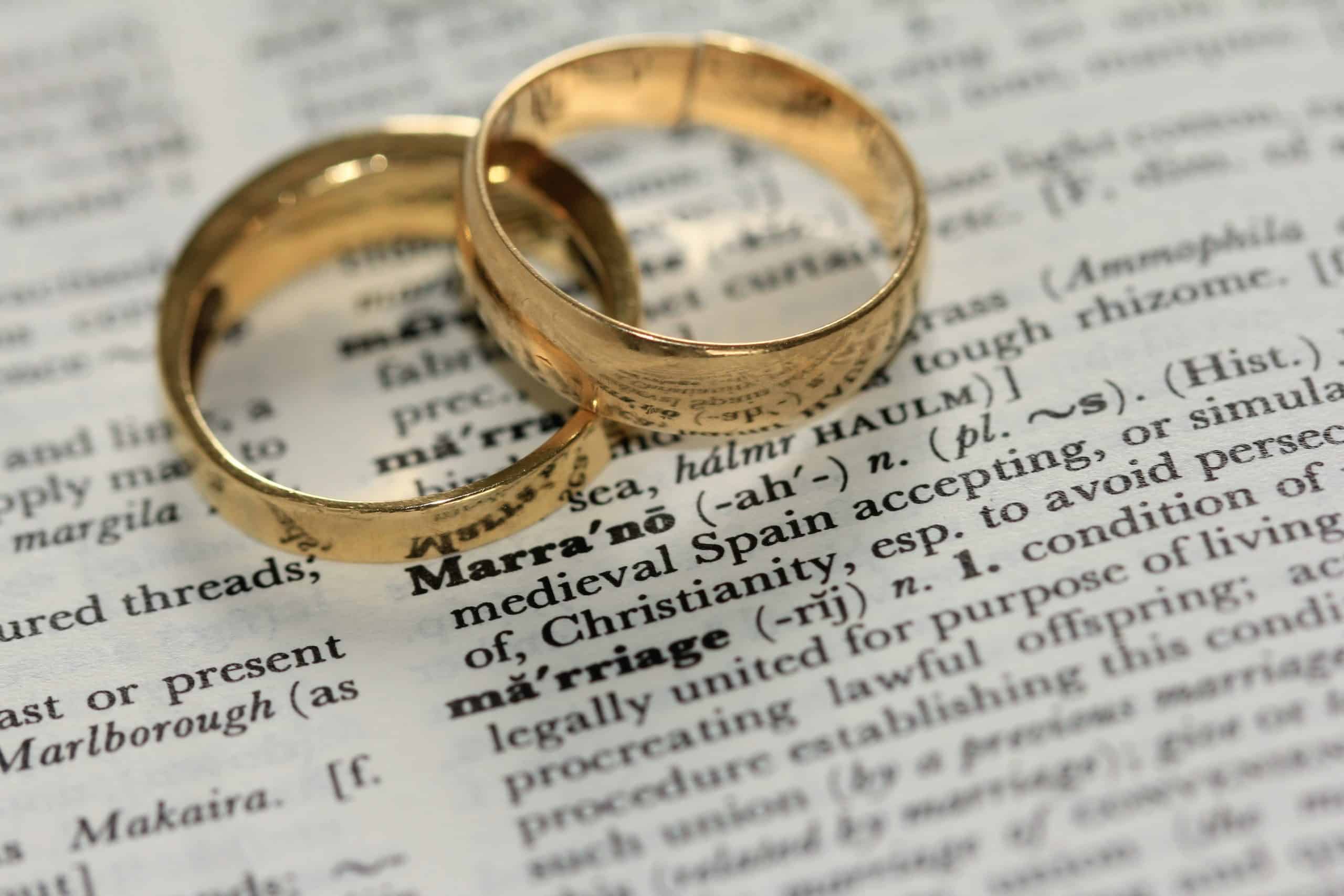In 2004, only one state allowed same-sex couples to get married. A little over ten years later, the U.S. Supreme Court declared that the Constitution grants same-sex couples the right to get married. Considering that all states have their own marriage laws, you might still be wondering: is gay marriage legal in Texas?
While the Supreme Court did rule that same-sex marriage was legal, there actually were some holdouts at the county level in the state of Texas. In fact, until 2020, one county held that it would not issue marriage licenses to gay couples.
At this point, though, same-sex couples can apply for and receive a marriage license in all Texas counties.
Are you wondering what else there is to know about gay marriage in Texas? Let’s dive in and take a look at all of the details.

Gay marriage has been legal in Texas since 2015. Soon after the U.S. Supreme Court ruling of Obergefell v. Hodges on June 26, 2015, all Texas counties except Irion County began issuing marriage licenses to gay couples.
Many counties in the state began issuing same-sex marriage licenses within just a few hours of the ruling, which stated that same-sex couples have the fundamental right to marry and bans on gay marriage at the state level are unconstitutional. Some other Texas counties waited to begin issuing licenses to same-sex couples until they received corrected state license forms or direction from state officials and local county attorneys.
The Attorney General of Texas, Ken Paxton, released an opinion stating that he supported county officials that refused to issue same-sex marriage licenses on religious grounds. Both Hood County and Irion County chose to not issue licenses based on this reasoning, but Hood County changed their tune when a lawsuit was threatened against them.
Irion County remained the sole holdout in the Lone Star State until 2020 when a new person took over the role of the county clerk. The County will now willingly issue licenses to all couples, meaning that there are no counties in Texas that will not grant marriage licenses to same-sex couples.
In the first three months after the Supreme Court ruling, about 2,500 gay couples were married in the state of Texas.

Before the Supreme Court ruling that determined that state bans against gay marriage were unconstitutional, it was not legal for same-sex couples to get married in Texas. However, one marriage license was issued to two women early in 2015 before the Supreme Court Ruling, when a state court ordered a Travis County Clerk to do so on account of one of the women being ill.
There were two judges in Texas prior to the Obergefell v. Hodges decision that determined that the state ban on same-sex marriage was unconstitutional in two separate cases in 2014. However, both of these cases were appealed.
The Texas Legislature, in 1997, prohibited marriage licenses from being issued to couples of the same sex. Six years later, in 2003, a statute was enacted by the Legislature that voided any civil union or same-sex marriage in the state of Texas. This same statute also prohibited any political subdivision of the state, any agency, or the state itself from giving effect to civil unions or gay marriages that occurred in other jurisdictions.
In 2005, Texas Proposition 2 was approved by Texas voters. This proposition amended the constitution of the state to prohibit the creation or recognition of “any legal status identical or similar to marriage” and defined marriage as consisting “only of the union of one man and one woman.”
There was a bill named House Bill 1300 that would have repealed the prohibition against gay marriage in Texas as a part of the Legislature’s 2013 season. The bill, however, died in the House of Representatives State Affairs Committee. Another bill known as Senate Bill 480 aimed to repeal the prohibition against civil unions, but this bill also didn’t make it through the State Affairs Committee.
There have been a number of state lawsuits in Texas regarding same-sex marriage over the years. However, the U.S. Supreme Court ruling in Obergefell v. Hodges determined that state bans against gay marriage were unconstitutional. Though two Texas counties initially did not abide by the ruling, and Irion County held out for several years, all counties in Texas will issue same-sex marriage licenses as of 2020.
There have been a number of notable cases in the history of Texas state law regarding gay marriage and divorce in the state.
The Texas ban against same-sex marriage was challenged by two couples in November 2013. One couple was married in Massachusetts and the other couple was unmarried. Federal District Judge Orlando Garcia was assigned the case, and he ruled on February 26, 2014, against the ban on gay marriage in Texas.
The Attorney General, Greg Abbott, stated that Texas would appeal the decision and Governor Rick Perry responded that the court was trying to overrule what Texans had voted for through an election.
When the U.S. Supreme court ruled that state bans against gay marriage were unconstitutional, this case was still pending in the Fifth Circuit. Garcia issued the final order to strike down the same-sex marriage ban after the decision from the Supreme Court.
This case from 2014 involved a same-sex couple that had gotten married in Washington D.C. They filed for divorce and child custody lawsuit, and, as a part of which, Judge Barbara Nellermoe ruled that there were three parts of the Texas Family Code that were unconstitutional.
This case involved a different same-sex couple that got married in Massachusetts. They filed for divorce in Austin and were actually granted the divorce before the Attorney General was able to intervene. The decision was appealed by the Attorney General, but the Third Court of Appeals in Austin held that the state couldn’t challenge the divorce. The case went on to the Texas Supreme Court and the divorce was ultimately granted even though the State of Texas never recognized the marriage.
(Are you wondering how long it takes to get divorced in Texas? Take a look at this article to learn more.)
In February of 2015, Judge Guy Herman found the refusal to recognize same-sex marriage in the state of Texas as unconstitutional while hearing a disputed estate case. He recognized the common law marriage of two women in order to decide a case regarding inheritance.
There was an intervention from Attorney General Ken Paxton with the goal of overturning this action.
Another judge, Judge David Wahlberg, ordered the issuance of a marriage license to two women in Travis County just two days later. One of the women was severely ill, and this was the reason for ordering a marriage license to be issued. They were able to receive the license and get married the same day.
Both of the orders were stayed by the Texas Supreme Court in February 2015. While Paxton did ask the court to void the marriage license of the two women, his efforts were eventually dismissed by the Texas Supreme Court.

In order to get married in Texas as a same-sex couple, you go through the exact same process as a heterosexual couple. You first have to apply for a license at the county clerk’s office. This is followed by a 72-hour waiting period before an authorized religious official or a judge can marry you.
The application for a marriage license requires that you display that you are legally eligible to get married. This means that you cannot be currently married, you can’t be trying to marry someone that is your first cousin or closer in blood relation, and you can’t be trying to marry a current or former stepchild or step-parent. For people that wanted to get married under the age of 18, a court order is required.
Once the license is issued by a county clerk, the marriage ceremony must occur within thirty-one days. Your ceremony can be performed by any justice, judge, justice of the peace, or an authorized officer of a religious organization.
Yes, there is a waiting period before you can get married in Texas. This waiting period is typically 72 hours after you receive your marriage license.
Texas is not the only state that requires that couples wait after receiving their marriage license before getting married. The reasoning behind this is to allow couples some time to make sure that they are making the right decision for them.

Yes, a same-sex marriage performed in another state or country is valid in both Texas and the United States. This means that Texas residents that want to have a wedding out of state don’t have to worry about their marriage not being seen as legal when they return home.
Same-sex couples are also allowed to enter into an informal marriage. This type of marriage is also referred to as a common-law marriage. These couples are also allowed to hold the earliest date that they met all of the informal marriage requirements as their marriage date.
There is no specific time period that a couple has to be together before they are legally allowed to declare themselves to be a part of common-law marriage. Instead, they simply need to fulfill three requirements, which are:
In order to be common law married, both individuals need to be at least 18 years old. They also must be legally single and not related to each other by consanguinity (blood-related to a certain degree).
If one of the involved parties is married to someone else, the prior marriage must be dissolved before a new common law marriage can begin.
You are not automatically common law married if you live together for a certain period of time or if you have children together. The only way to have an informal marriage in the state of Texas is to satisfy the three points listed in the above section.
Death certificates in Texas do now reflect surviving same-sex spouses. A surviving spouse can also request a revised death certificate for a spouse that passed away before June 26, 2015, if their marriage was legally recognized in a different U.S. state.
In order to issue or amend a death certificate, documentation of the marriage needs to be provided as well as the other standard required documents.
It is still a good idea to practice estate planning even if you are married in Texas. This can allow you to legally determine a number of important decisions, such as appointing trustees to manage property and guardians for your minor children.
If you do not make these decisions ahead of time, a court might end up making these decisions.
Without a will, state law will dictate who your property is inherited by. If you are interested in controlling where your assets go after you pass away, you will want to create a will.
Yes, same-sex couples can get divorced in the state of Texas. The same basic issues are at hand in a Texas divorce whether it involves a straight or same-sex couple. These typically include property, children, and custody suits.
Are you wondering how much it costs to get divorced in Texas? Check out this article to learn more.
Same-sex couples were previously allowed to adopt in Texas. However, it required that each individual adopt the same child as a single person rather than as a couple. This meant that each parent needed to individually go through the adoption process one at a time with at least six months between each adoption process.
However, there are now new guidelines. That means that same-sex couples are allowed to adopt children as a couple as long as they are legally married. Under Texas law, all married couples go through the same process when it comes to adopting children.
If an unmarried couple wants to adopt a child, they typically have to go through the two-step process described above. It’s a good idea to consult a family law lawyer if you wish to adopt your partner’s biological child or if you and your spouse want to adopt a child jointly.
While the state of Texas was rather firm in its refusal to recognize same-sex marriage for many years, the U.S. Supreme Court ruling in 2015 began the process of all counties issuing marriage licenses to same-sex couples. When you get married in the state of Texas, at this point, the process is identical whether you and your spouse-to-be are of the same sex or of opposite sexes.
If you’re looking for more information on marriage, divorce, prenups, or any other related topics in Texas, you’ve come to the right place. Be sure to check out TexasDivorceLaws.org for more resources.